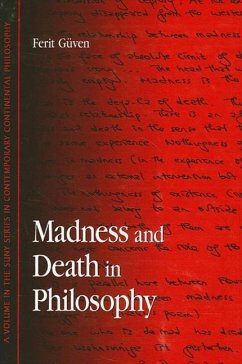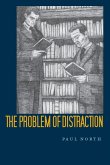Ferit Guven illuminates the historically constitutive roles of madness and death in philosophy by examining them in the light of contemporary discussions of the intersection of power and knowledge and ethical relations with the other. Historically, as Guven shows, philosophical treatments of madness and death have limited or subduced their disruptive quality. madness and death are linked to the questions of how to conceptualize the unthinkable, but Guven illustrates how this conceptualization results in a reduction to postivity of the very radical negativity these moments represent. Tracing this problematic through Plato, Hegel, Heidegger, and finally, in the debate on madness between Foucault and Derrida, Guven gestures toward a nonreducible, disruptive form of negativity, articulated in Heidegger's critique of Hegel and Foucault's engagement with Derrida, that might allow for the preservation of real other ness and open the possibility of a true ethics of difference.
Bitte wählen Sie Ihr Anliegen aus.
Rechnungen
Retourenschein anfordern
Bestellstatus
Storno








